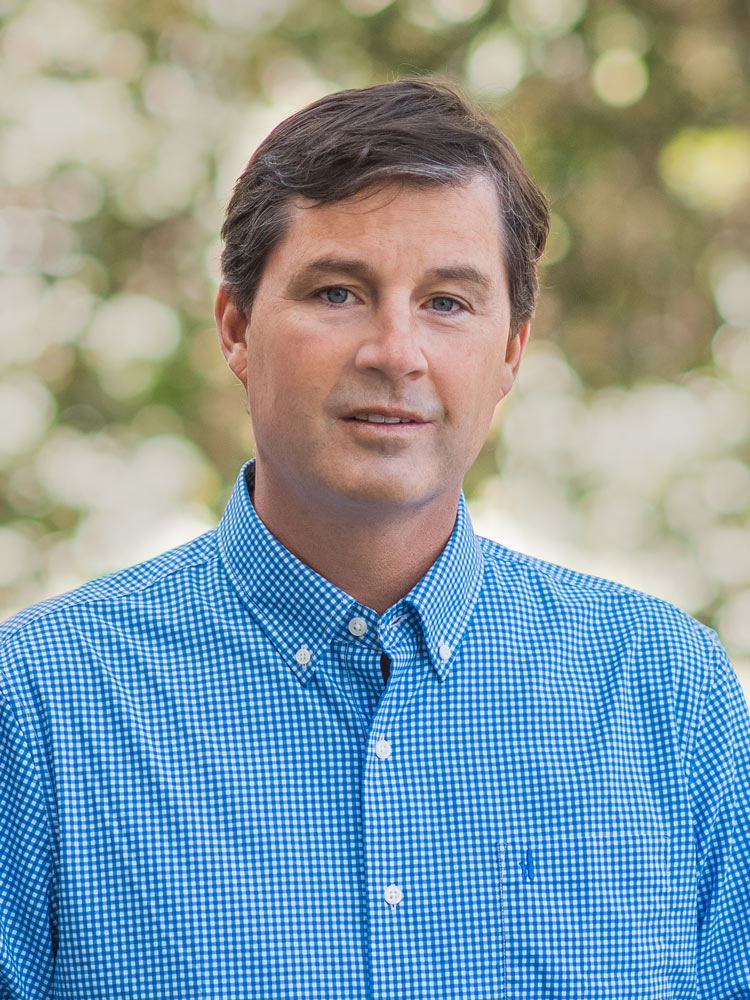Looking Back – A Path to Success Paved by SMC
By Miranda Kozman
This article appeared originally in the Fall 2019 issue of Frontiers Magazine.
If you’ve done business with the healthcare industry in South Carolina, you’ve likely encountered one of Gary Cooper’s businesses. Gary Cooper is a prolific entrepreneur whose endeavors include hospice care, home medical equipment, pharmacies, and more. Over the past two decades, he has successfully built and grown several companies in the Carolinas, which landed him a nomination as a finalist for Ernst & Young’s Entrepreneur of the Year award in 2007. Although he started his career alongside his father, he has now taken the helm and made a name for himself.
Cooper currently runs Palmetto Infusions, a company dedicated to providing a caring and comfortable environment for patients who require drug-infusion treatments for chronic conditions such as multiple sclerosis, lupus, and Crohn’s disease. Cooper and his father took the small company with limited revenue and no employees, and they transformed it into a much larger operation with several hundred employees.
When asked what he sees as the key to building a successful business, Cooper could easily focus on investors or business plans, but he doesn’t. He is acutely focused on the well-being and comfort of his customers. He believes his businesses have been successful because of the customer-focused culture he strives to create.
“We’ve been successful because we treat people differently,” Cooper says. “We remember every patient’s name. We make it easy to get into our centers. We make the centers comfortable. We use our relationships in the industry to reduce the cost of drugs. We provide patients with snacks and free Wi-Fi while they wait. Those are the things that make the difference.”
 Cooper’s approach has proven successful, and Palmetto Infusion has grown to 23 locations with plans for expansion in the future. “We’re growing because people are choosing us. People want us,” he says.
Cooper’s approach has proven successful, and Palmetto Infusion has grown to 23 locations with plans for expansion in the future. “We’re growing because people are choosing us. People want us,” he says.
It has taken Cooper a few decades to appreciate how Spartanburg Methodist College paved his way to success and influenced his early career. “SMC has a willingness to accept students who don’t get accepted to other schools,” he recalls. “I was that kid that nobody else wanted. I came from a small town, and I came with terrible grades. SMC gave me a chance that nobody else gave me, and I’m grateful for that.”
Yet when Gary arrived at SMC in 1990, it wasn’t all roses. He felt he had something to prove, and he carried some lingering disappointment. “Because I hadn’t been accepted to a lot of colleges, I had a chip on my shoulder,” he admits. “But I decided to use that chip to my advantage. I decided that I wasn’t going to be limited because I came out of a small town, and I didn’t get accepted into those other schools.
And that helped me. Now I sit in these boardrooms, and I’m competing with people who graduated from Wharton and Stanford and Harvard. But I never see myself as lesser.”
Although he was able to harness his disappointment and turn it into motivation, he still acknowledges he made some mistakes along the way. As he reflects on his early academic career, he wishes he had finished his second year at SMC before moving on to Wofford.
“Originally, I wanted to do pre-med at Wofford College, but I didn’t get in. So I went to SMC and started taking some of the classes I needed. Then I left SMC after one year because I thought I was ready academically. When I transferred to Wofford, it turned out I wasn’t prepared. So thinking about it now, I wish I would have stayed at SMC longer and done more to prepare. I’m in my forties and that’s probably one of my biggest regrets.”
Cooper got to Wofford College and realized quickly he did not care for the classes in the pre-med program. He happened to take an economics class that piqued his interest, and his career abruptly took a turn toward business and business administration.
When asked what SMC did for his career, Cooper doesn’t mince words. “SMC reinforced my work ethic. I think I had a good work ethic already, but SMC made it stronger. I knew I had to work hard and get my grades up if I wanted to move on to a four-year school.” That strong work ethic has now propelled him to the top of his industry.
He also credits SMC with setting high expectations for his future. “There was always an expectation from the teachers that we would, without a doubt, move on to a four-year program,” he says. The teachers were always giving us advice about what to do when we went to the next institution — never if we got there — always when we did.”
As Cooper has moved through his career, he has learned important lessons about success that he hopes can be shared with young entrepreneurs and students at SMC. “In business, so many people get caught up in their egos. I did, too, at times. It’s taken me a while to mature and realize that you have to create the space for your team. It’s not just about you. One person can only do some much. But if you step back and allow others on your team to grow and get credit, it makes you grow ten-fold.”
Gary’s focus on the people he works with, both his customers and his employees, has been crucial to his success, and he seems determined to hold tight to those values as he continues his career. With several decades of successful business development under his belt, he is showing no signs of slowing down.
